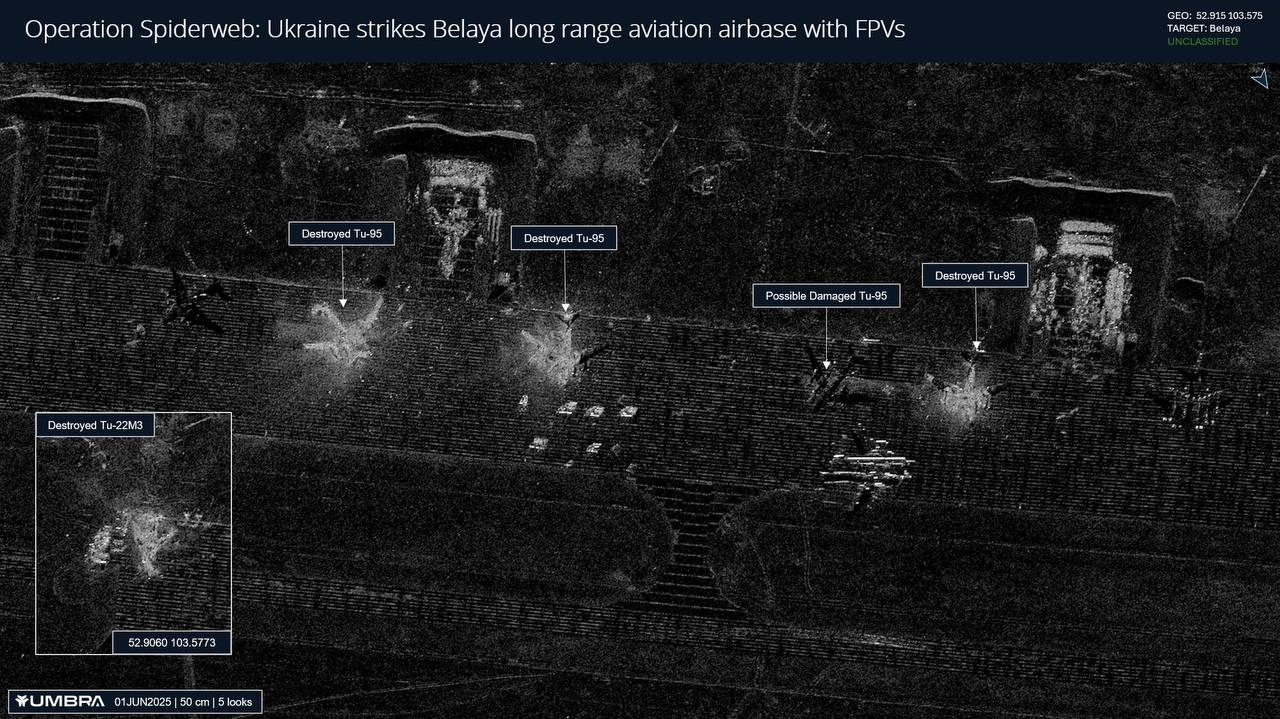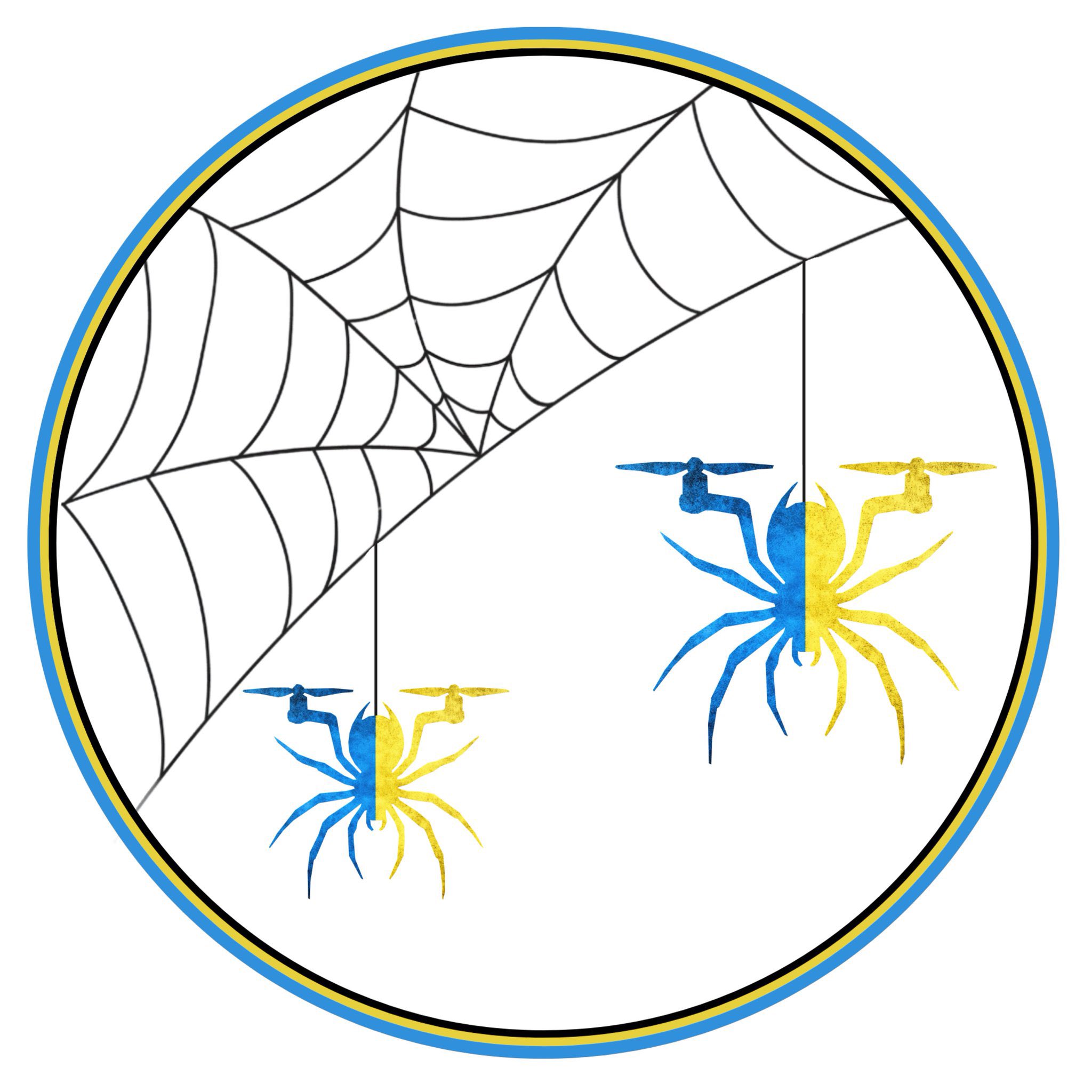Ukraine’s audacious Operation Spider Web wasn’t just a military stunt – it was a warning to the world in modern hybrid warfare. A swarm of 117 FPV drones targeted Russia’s nuclear-capable bombers deep in Siberia. While NATO and Ukraine cheered, Moscow reeled with millions lost in seconds.
But as the dust settles over Russian airfields, Bharat must confront chilling lessons.
From satellite warfare to sleeper cells within, Operation Spider Web exposed how a sovereign state can be violated. No infiltration required, no boots on the ground – just treachery against Bharat Mata. The war game has changed and Bharat must adapt or risk waking up too late.
Lesson 1: Deny the Sky – Block Rogue Satellite Networks

It sounds futuristic, but space is already a battlefield. The pinpoint precision of Operation Spider Web sparks serious doubts about satellite neutrality. OSINT claims that Ukrainian operators used basic drones. However, no one can explain how they coordinate and strike simultaneously across five Russian regions without satellites!

Multiple critical targets deep inside Russian territory – thousands of kilometers apart – thousands of kilometers away from Ukraine – cannot be attacked unless they use encrypted satellite communication.

No direct proof ties Starlink to the operation. But Ukraine has used Starlink before in coordinating its attacks against Russia. And this time, each of the 117 required live feeds and remote control. Each drone was manually guided like a homing missile through Russian airspace. Hence, analysts argue the attack is impossible without real-time satellite imagery, likely fed by NATO or U.S. intelligence or Starlink.
Here is what Bharat must take note of – foreign-controlled satellite systems capable of being “bought” become a national security threat.
Today it’s Ukraine. Tomorrow, hostile actors like Pakistan or China may rent the skies over India. Bharat must continue to deny access to foreign satellite networks like Starlink. Additionally, it must develop its own secure, sovereign constellations. Space has no borders – but Bharat must draw its own.
Lesson 2: Jam the Signal – Disrupt Enemy Eyes and Ears
The second lesson is simple but urgent: Install jammers at all critical sites.

The drones in Spider Web weren’t just flying on pre-programmed GPS. They were manually piloted. That means someone – possibly from inside Russian territory – was operating them in real-time. Ukraine claims its soldiers conducted the strike from within Russia and 34% of drones hit the target successfully.
Without RF jammers or anti-drone systems, even Siberia’s high-security airfields became sitting ducks.
Imagine what could happen in India if a similar tactic is employed. From military bases in Punjab to naval installations in the Andamans, would be vulnerable if hostile drones slipped through undetected.

Signal disruption tech must now become as essential as radar. From Parliament to power grids, India’s critical zones need layered jamming fields. Because if we can’t block them, we can’t stop them.
Lesson 3: Housecleaning Before Headlines

A nation can’t be secure if its people betray it. Russia was infiltrated and drones were stored in Russian trucks over a period of 18 months. Allegedly, all operators escaped after the assault. That kind of internal breakdown is not possible without collaborators — locals, spies, or compromised security officials. For Bharat, such a war by drones is much more ominous.
Illegal immigrants from Bangladesh, sleeper cells of Pakistani handlers, and a 0.5 front — intellectual elites who bat for the enemy under the garb of free speech — are Bharat’s silent saboteurs.
Lesson 4: Strike Fast – Don’t Let the Snake Coil

Russia is reeling not because it’s weak, but because it let the war drag. Fork-tongued Ukraine used that time to prepare for this assault while pretending to want peace in front of cameras. They smuggled drones, mapped targets, and waited 18 months for the perfect moment. Then, they struck with surgical precision.
Bharat is making the same mistake with Operation Sindoor, pausing kinetic response, in hopes of responsible introspective corrective action by Pakistan.
But Pakistan, the global debt darling, is using the lull to regroup. Propped up by the IMF, mollycoddled by China, and cajoled by the US – Pakistan enjoys playing the part of the “poor victim of India’s aggression”! The world condones NaPak’s lies – not out of love, but out of financial necessity. Pakistan gets international sympathy and funds even as it harbors terrorists – because its creditors cannot afford for it to go bankrupt.

Bharat must learn from Operation Spider Web: Finish wars quickly.
Don’t give snakes time to coil. When they do, they strike with venom – not warning.
Operation Spider Web – Weaponizing Treachery, Space Tech, and Victim Card

Operation Spider Web proved that sovereignty can be breached not with soldiers, but with software, satellites, and sleeper cells. While Zelenskyy went door to door portraying Ukraine as a victim, he planned and paid for this attack on Russia for 1.5 years. Thus, Operation Spide Web is only being celebrated by the fools – the wise hear the whispers of warning.

A nation like Bharat, surrounded by hostile neighbors, should observe how even a beggared Ukraine can deliver a blow to Russia.
The battlefield is no longer on the ground. It’s in the sky, on screens, and in the hearts of those within. In this fight for survival and glory – Bharat stands alone. But that’s not a weakness – it’s our strength. To stay ahead, we must be ruthless in strategy, relentless in tech, and fearless in response.
Because the next spider web could land over Delhi.



![awakening bhārata 🇮🇳 on X: "#Thread 1/n Gen Bipin Rawat was right. The man who coined term "Two & Half Front War" 0.5 front[Enemies inside] Recently, CJI Ramana said in event Foreign](https://i0.wp.com/pbs.twimg.com/media/FPW9ltIXIAUVpFK.jpg?resize=373%2C359&ssl=1)